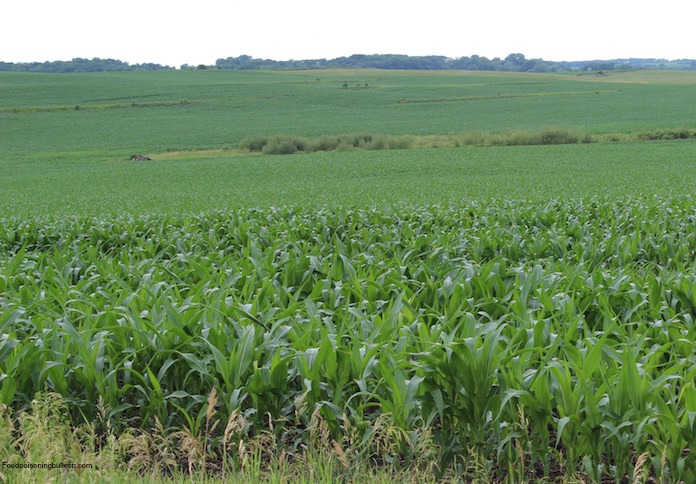A new study published in Science Advances states that the increasing planting of GMO maize and soybean crops has resulted in the increase of herbicide use in the U.S. The study looked at plot-level choices made by U.S. corn and soybean farmers from 1998 to 2011. Pesticides is a broad term that includes herbicides, which kill plants, and insecticides, which kill insects. The herbicide of choice for decades has been glyphosate, one of the components of Roundup.

The researchers found that, on average, adopters of GE glyphosate-tolerant (GT) soybeans used 28% more herbicide than nonadopters, while adopters of GE glyphosate-tolerant maize used 1.2% less herbicide. While herbicide use increased, adopters of GE insect-resistant maize used less insecticides. This pattern of change in herbicide over time “is consistent with the emergence of glyphosate weed resistance,” according to the study.
In the U.S., 94% of soybeans and 93% of maize planted are genetically engineered. These crops are engineered to be sprayed with glyphosate, one of the ingredients in the weed killer Roundup, whereas insect resistant plants are substituted for the use of insecticides.
This study was conducted over such a large time frame and uses observed herbicide usage rates instead of the the recommended rates for conventional herbicide use before GMO crops were in use. Therefore it shows the affect of GE crop adoption on pesticide use over time.
Because weeds are becoming resistant to glyphosate, farmers have had to use different types of herbicides. In fact, “one of the early indicators of resistance would be a relative increase in the use of nonglyphosate herbicides by GE adopters.”
And that is exactly what has happened. Up to 2006, the study states that “more than 70% of land planted with GT soybeans and more than 40% of land planted with GT maize were treated exclusively with glyphosate. However, since then, these rates have dropped significantly, reaching lows of 41% (soybeans) and 19% (maize).” And, in fact, Dow Chemical is now developing new GMO corn and soy varieties that are resistant to 2,4-D, one of the components of Agent Orange, because so many weeds have become resistant to glyphosate.
The authors conclude that they “find clear evidence of increasing herbicide use by GT variety adopters over time for both soybeans and maize, a finding that we attribute in part to the emergency of glyphosate weed resistance. No such pattern appears for maize insecticide use over time, consistent with the evidence that non-BT maize refugia have been broadly effective as a means to prevent the onset of pest resistance.”




